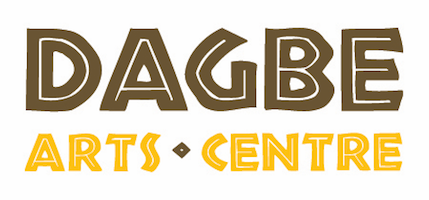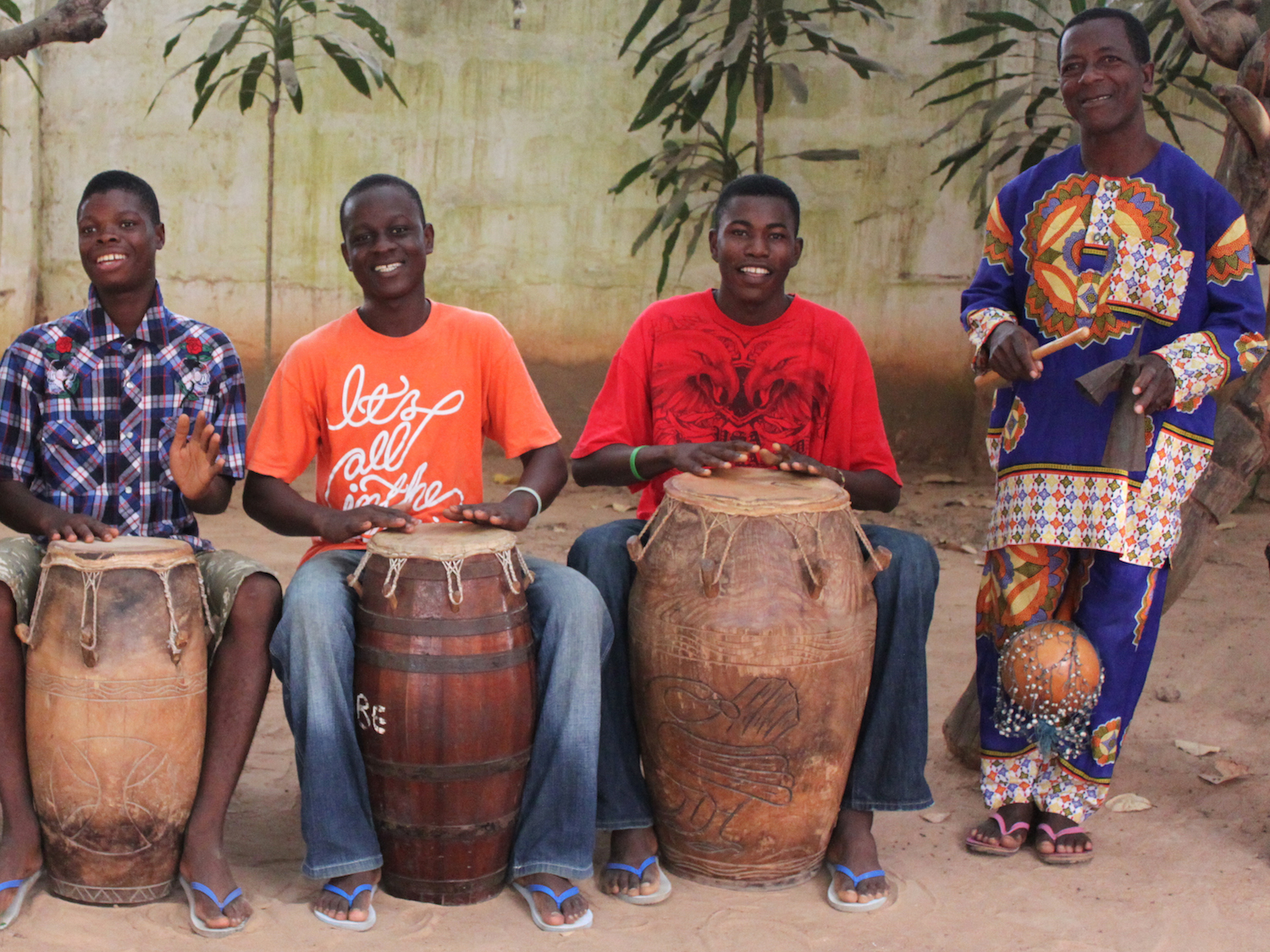ABOUT THE DAGBE CULTURAL INSTITUTE
A sprawling village with a population of 2,000, Kopeyia lies in an area close to the sea that is known for its breathtaking natural beauty. With gently rolling farmland intersected by lagoons and laced with tropical trees (coconut and palm being the most common), Kopeyia is home to a nationally known drumming troupe, the Dagbe Cultural Institute & Arts Centre and the Kopeyia-Bloomfield Primary and Junior Secondary Schools, where 1,000 area students earn an English-language Ghanaian education.
A close-knit farming community in the Ewe-speaking Volta Region, Kopeyia is celebrated for enthusiastically perpetuating the traditions of Ewe culture. Many of its craftsmen, artists and musicians have been able to dedicate their lives to the culture of their ancestors thanks to the Dagbe Institute.
Despite its small size and relatively remote location, Kopeyia has long been a top destination for people interested in West African drumming and dance. The Dagbe Institute was founded in 1984 by the late, renowned West African drummer (and Kopeyia native) Godwin Agbeli, and is currently run by his son Emmanuel and the extended Agbeli family. Prior to his death in 1998, Godwin spent a good deal of time performing and teaching at US institutions of higher learning.
Initially sponsored by the Agbekor Drum and Dance Society, a Boston-based non-profit focused on West African music in the United States founded by Tufts University Professor David Locke, these sojourns abroad provided Godwin with the wherewithal to set up Dagbe. It is here, in this remarkably serene yet dynamic setting, that people of different backgrounds and cultures now freely share their stories, values and customs in an atmosphere of kindness, tolerance and mutual respect.
The mission of Dagbe is to sustainably preserve West African and Ewe culture by bringing the enduring economic benefits of a successful cultural tourism business to the local community. Dagbe's clients, drawn mainly from the US, range from music and dance educators and performers, to students and others interested in multicultural experiential education. Dagbe’s core curriculum is 1-2 weeks of group instruction in drumming, dancing and singing, augmented by private lessons. Teachers are local experts with deep experience in working with newcomers.
Periods of instruction are enriched with classes in traditional crafts and opportunities to witness rural village life. The program also includes trips to the beach, shopping at traditional open markets and observation of and participation in the local festivals of the Ewe people. Key to the Dagbe learning opportunity is downtime to soak in and reflect upon the profound nature of the experience many people have while there.


